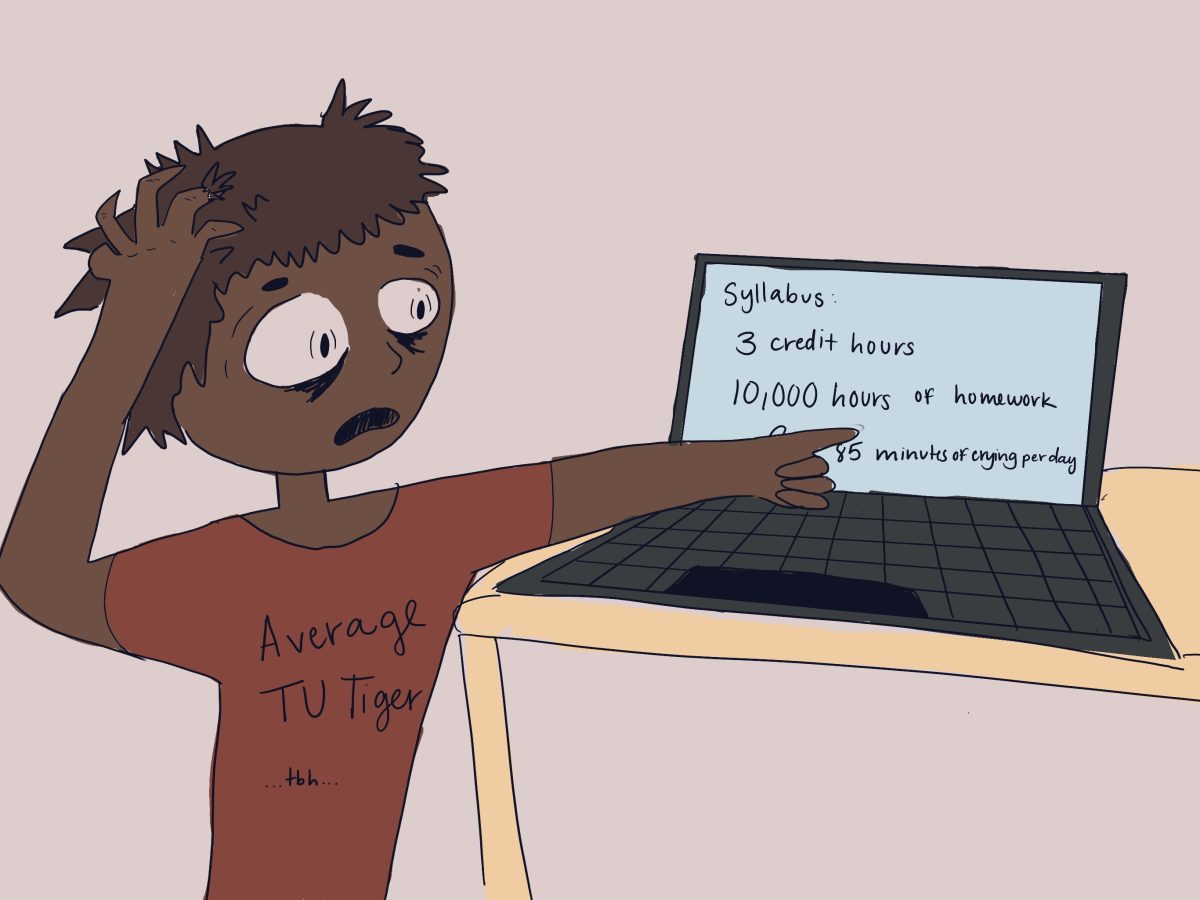Trinity will gradually transition to having 50% of all classes in each department be worth four credit hours. A recently created committee decided that students would benefit from being enrolled in fewer classes.
Trinity filled the committee with professors from various departments to re-evaluate the current credit-hour system. After meeting from fall 2022 to spring 2023, the committee introduced a statement of principles and agreed that all departments would transition half of their curricula to four credit-hour classes, although without an exact deadline.
The idea behind the move to more four-credit-hour classes is that students will be enrolled in fewer classes and able to focus on these subjects more while being pulled in fewer directions. Additionally, faculty members would be required to teach fewer classes each semester.
There are some with reservations about changing the current system. Dennis Ugolini, professor of physics and astronomy, was on the review committee. Ugolini mentioned that ten years ago, a committee reviewed the credit-hour system and created the current system, with a hybrid of three and four-hour classes.
“I thought that was great, that this was one of the places that, in my mind, has always been a place that says we are willing to straddle that line,” Ugolini said. “I thought it was a sign of how enlightened we were that we could be that flexible.”
Some students are also in favor of the credit system the way it is. In addition to less flexibility and variety, transitioning to more four-credit-hour classes may make it more difficult for some majors to create their schedules. Natalie Smith, sophomore chemistry major, commented on the credit system within her major.
“With labs and stuff, having four credit hour classes would make it nearly impossible to stay under the 18-credit hour limit while simultaneously getting the credits you need to graduate,” Smith said. “I think having fewer classes would make it honestly harder to graduate and figure out your schedule.”
Ugolini also remarked that some majors may find it more difficult to adapt to a predominantly four-credit-hour system. Particularly, he mentioned engineering and music, as well as other specialized programs.
“I think the ones that are going to find it the most difficult are accredited programs that have a very distinct list of requirements that they have to fulfill. If they have to start cramming them together in weird combinations to get fours, that’s going to be weird to sell,” Ugolini said. “Again, for the same reason, I think departments that do a lot of preparation for graduate school are going to have trouble with this.”
Four vs. three-credit-hour classes are not the only hesitation some have about Trinity’s credit-hour system. Ugolini also commented on the distribution of credit hours compared to workload.
“I think the biggest issue is that we have a lot of classes that are incorrectly united for the amount of work they have,” Ugolini said. “The idea that students are being pulled in too many directions is not because we have some threes and some fours, but because those numbers don’t mean anything. There are classes out there that are fours that are more like twos, and there are ones that are tens.”
Ugolini is not alone in this sentiment. Fazaleh Mirghassemi, first-year finance major, remarked that she finds the credit hours associated with a class do not always accurately reflect the workload required for that class.
“My chem[istry] lab takes up so much time, and it’s honestly not even worth it because, first of all, we’re there three hours in class per week. And that doesn’t even count post-labs and pre-labs,” Mirghassemi said. “I generally think it should not count as only one hour because we put so much work into it.”
Ugolini also mentioned that he had fought to include a statement about re-uniting classes in the statement of principles document. However, this statement was not ultimately included due to some seeing it as academic affairs or the University Curriculum Council (UCC) overstepping. Without this addition, some majors, such as engineering, will have more trouble.
“They can do it,” Ugolini said. “But is it worth it? I’m not sure.”
Categories:
Trinity gradually transitions to a four-credit-hour system
Some faculty and students worry about possible repercussions on certain majors
More to Discover







